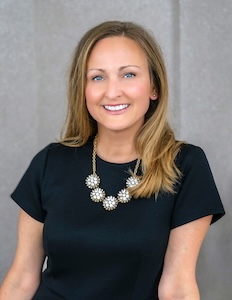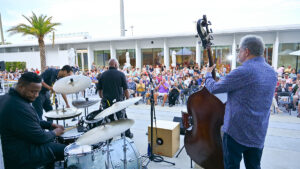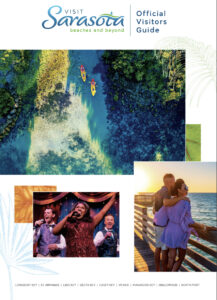Sarasota boosters fear collateral damage.
By Sera Deniz
Original Air Date: May 21, 2025
Host: State legislators are still in session, trying to come up with a budget while the Republican governor and the Republican-controlled House of Representatives are fighting over what taxes to cut. Now, under the radar of the general public, tourism taxes apparently have been dragged into that fight as well. Sera Deniz sheds light on how there might be collateral damage in Sarasota.
Sera Deniz: As Florida lawmakers continue to debate how tourism tax dollars should be spent, leaders in the tourism industry are voicing serious concerns. House Bill 1221 proposed sweeping changes to the how counties may use tourist development taxes, triggering backlash from the industry. That bill may no longer be in play, but similar legislation is moving forward—legislation that could still dramatically reshape how tourism dollars are used by counties across Florida.
Erin Duggan is Visit Sarasota County’s CEO. She says the potential impact remains just as troubling.

Erin Duggan.
Erin Duggan: Initially, it was 1221 that you had approached me about, but in the last week, I believe that bill is now dead, if I’m reading correctly. However, similar to what they wanted to do with tourist development tax, there’s another bill moving about a complete overhaul of tourist development tax in Florida. A lot of our issues that we’re talking about are the same.
SD: In Sarasota County, tourism is big business—and the Tourist Development Tax, or bed tax, plays a central role. The county currently collects a 6% tax on short-term lodging stays, such as those in hotels, motels and vacation rentals. That revenue has grown significantly in recent years, becoming a key source of funding for community investments.
ED: Last year, the tax collector collected a little over $48 million in tourist development tax. That’s 6%. Folks are only paying tourist development tax if you’re staying in a short term rental accommodation, so anything under six months. Of course, that’s folks staying in hotels, motels, but it even includes those staying in Airbnbs and VRBOs.
SD: But tourism leaders stress that this isn’t just about attracting more visitors; it’s also about maintaining the quality of life for Sarasota residents. Contrary to what some might assume, the vast majority of these tourism tax dollars aren’t spent on advertising.

A jazz concert funded by Sarasota’s tourism tax.
ED: The overwhelming majority of the tourist development tax collected does not go to tourism marketing. It goes to things like beach maintenance, beach renourishment, Nathan Benderson Park—which is a beautiful rowing facility, but there’s also a whole bunch of other tourist- and resident-friendly activities that are happening out there, from a playground to a variety of different kinds of festivals and other athletic and community events. Our two spring training facilities are supported by tourist development tax dollars. Mote Aquarium, which will be opening up later this year—there’s about $20 million of tourist development tax going towards that. Arts Alliance grants—part of what makes Sarasota County Florida’s cultural coast.
SD: Less than 20% of the bed tax is used for tourism marketing, but the CEO of Visit Sarasota County says that small investment is essential. It fuels a cycle of economic growth by bringing in high-value visitors who spend money in the community and support local jobs.
ED: Our goal with the dollars coming in is to spend them in such a way that we’re, in essence, generating more tourist development tax. Yes, we want to put heads in beds, but we want to put meaningful heads in beds. We always talk about quality, not quantity.
SD: From major sporting events to cultural festivals, those targeted marketing efforts help attract groups and travelers that may never have considered Sarasota. And once they arrive, the economic impact can be felt far beyond the hotels.

A Visit Sarasota brochure
ED: When people are coming here to compete, not only are they staying in rooms and going out of their rooms and eating in our restaurants and visiting our attractions, but they usually tend to come with family and friends that are watching them compete.
SD: The fear, she says, is that, if tourism marketing is defunded or scaled back, the ripple effects could be devastating—not just for the tourism sector, but for the broader community.
ED: I truly believe—and there’s research that will back it up—we are going to have rooms that are empty. We’re going to have facilities that are empty. And that has a trickle effect. That has a trickle effect to the restaurants; it has a trickle effect to the retail shops; it has a trickle effect to all of our attractions.
SD: As the legislative debate continues, Visit Sarasota County is encouraging lawmakers to take a closer look at how tourism taxes are actually used—and to talk directly with local tourism experts before making any final decisions.
ED: Reach out to your local destination marketing organization. Reach out to the team. Talk to them. Talk to their boards. Tourism is vital here in Sarasota County. It is vital in the state of Florida, and we absolutely cannot take it for granted. If you build it, they do not come. You have to market.
SD: Reporting for WSLR News, Sera Deniz.
WSLR News aims to keep the local community informed with our 1/2 hour local news show, quarterly newspaper and social media feeds. The local news broadcast airs on Wednesdays and Fridays at 6pm.